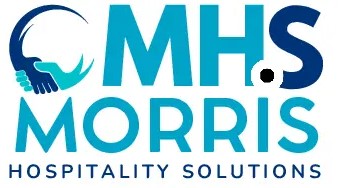Top Hiring Trends in Hospitality and Healthcare for 2024
As we approach 2024, the hiring landscape in the hospitality and healthcare sectors is evolving rapidly. Understanding these changes is crucial for both employers and job seekers to stay ahead of the curve. This blog delves into the top hiring trends for the year, providing insights that can help you navigate the job market or enhance your recruitment strategy.
1. Increased Focus on Soft Skills
In both hospitality and healthcare, technical skills have always been essential, but soft skills are gaining unprecedented importance. Employers are placing a greater emphasis on qualities such as empathy, communication, adaptability, and problem-solving.
- Hospitality: Exceptional customer service is more than just a skill; it’s a core component of the guest experience. Employees who excel in handling diverse guest interactions and managing stressful situations are highly valued.
- Healthcare: Soft skills like empathy and effective communication are crucial for patient care. Healthcare professionals need to build trust and provide comfort, which requires a high level of emotional intelligence.
2. Growing Demand for Tech-Savvy Professionals
Technology continues to transform the way both industries operate, making tech proficiency a significant asset.
- Hospitality: With the rise of smart technology, including mobile apps and automated systems for booking and guest management, there is a growing need for staff who are comfortable with tech tools and can manage digital interfaces efficiently.
- Healthcare: From electronic health records (EHRs) to telemedicine platforms, healthcare professionals must be adept at using various technologies. The integration of AI and data analytics into patient care and administrative tasks also calls for a more tech-savvy workforce.
3. Emphasis on Diversity and Inclusion
Diversity and inclusion are becoming central to hiring practices as companies recognize their value in fostering innovation and improving customer experiences.
- Hospitality: A diverse team can better understand and cater to a global clientele. Hospitality businesses are increasingly focusing on creating inclusive work environments and promoting diverse hiring practices.
- Healthcare: A diverse healthcare workforce can lead to more equitable patient care and improved health outcomes. Emphasizing inclusivity helps in addressing varied patient needs and building stronger patient-provider relationships.
4. Remote and Hybrid Work Opportunities
While remote work is more common in other sectors, it is making inroads into hospitality and healthcare as well.
- Hospitality: Remote work is not yet widespread in traditional roles but is growing in areas like reservations, customer support, and administrative positions. Hybrid models are also being explored for managerial roles.
- Healthcare: Telehealth services have expanded significantly, offering remote work opportunities for healthcare professionals such as therapists, counselors, and consultants. Hybrid models are also emerging for administrative and support roles within healthcare settings.
5. Focus on Employee Well-being and Mental Health
Both sectors are increasingly recognizing the importance of supporting employee well-being.
- Hospitality: The high-stress nature of hospitality roles can lead to burnout. Employers are implementing wellness programs, mental health support, and work-life balance initiatives to retain top talent and improve job satisfaction.
- Healthcare: Healthcare workers often face significant emotional and physical stress. Organizations are focusing on mental health resources, support systems, and professional development to help manage stress and prevent burnout.
6. Increased Use of Data-Driven Recruitment
Data analytics is becoming a key tool in the hiring process, helping employers make informed decisions.
- Hospitality: Data on guest preferences, employee performance, and industry trends is used to tailor recruitment strategies and improve hiring outcomes. Predictive analytics can also help in forecasting staffing needs.
- Healthcare: Data-driven approaches are used to identify skill gaps, streamline recruitment processes, and enhance candidate matching. Analytics help in understanding workforce trends and improving hiring efficiency.
7. Upskilling and Continuous Learning
The pace of change in both industries necessitates ongoing learning and development.
- Hospitality: Continuous training in new technologies, customer service techniques, and cultural competence is becoming standard. Employers are investing in upskilling programs to ensure their staff remain competitive.
- Healthcare: With advancements in medical technology and treatment methods, healthcare professionals need to engage in lifelong learning. Certification programs, workshops, and online courses are crucial for staying updated.
Conclusion
The hiring trends for 2024 in the hospitality and healthcare sectors reflect a broader shift towards integrating technology, enhancing employee well-being, and embracing diversity. For employers, staying ahead means adapting to these changes and adopting strategies that align with these trends. For job seekers, understanding these trends can help in tailoring resumes, developing relevant skills, and navigating the job market effectively.
By embracing these trends, both employers and employees can ensure they are well-prepared for the dynamic landscape of 2024 and beyond.

